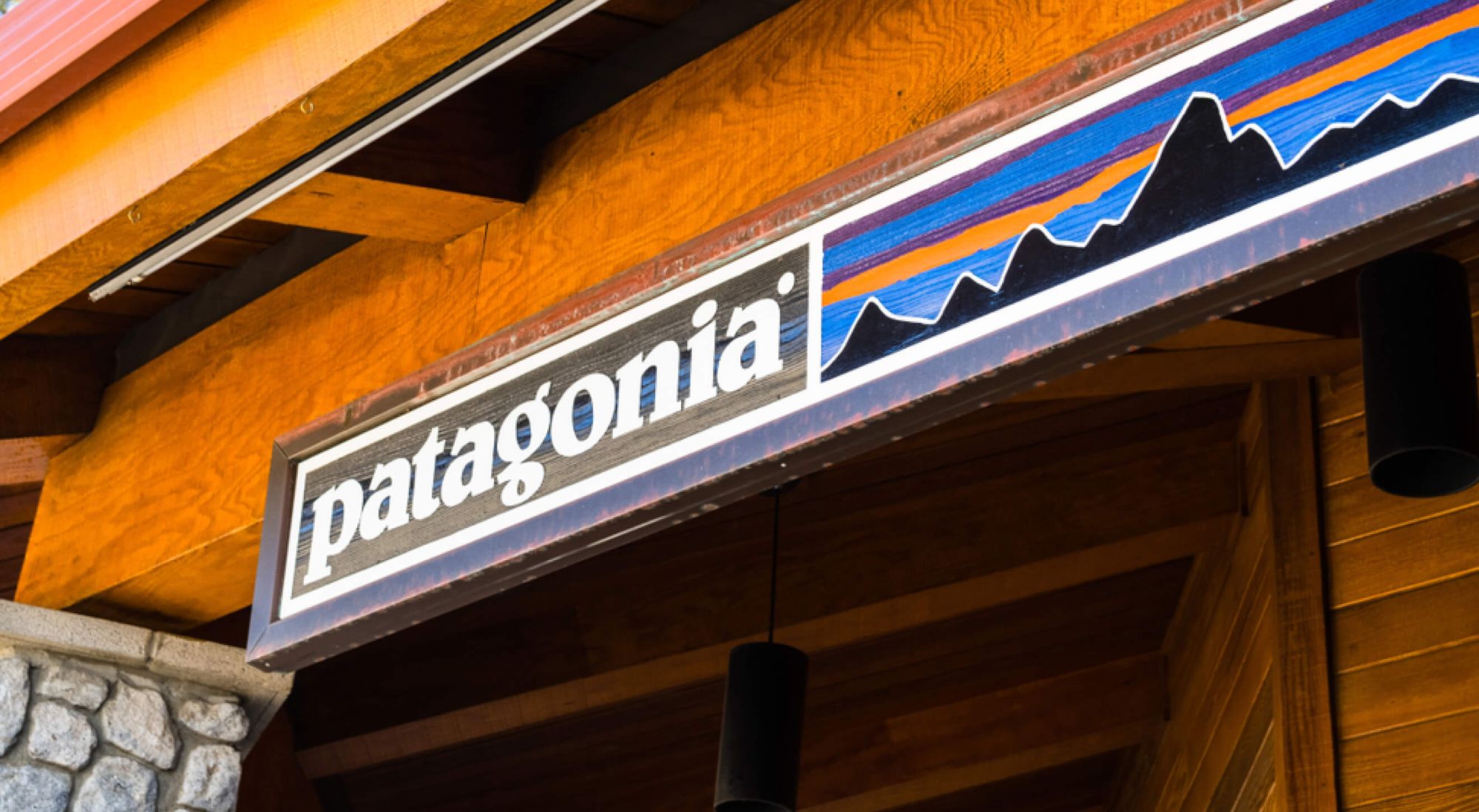Patagonia company culture in action: How HR can apply these values anywhere

A compass doesn’t make noise—but it always knows where to point. That’s what values are like in a company. You may not talk about them every day, but if they’re real, they shape how people act, work, and make decisions—quietly and consistently.
Patagonia is a good example of this. Their beliefs show up not just in what they sell, but in how they treat their people and make everyday choices.
For HR teams, the takeaway isn’t to copy their style—it’s to build your own steady compass. One that helps your team stay true to what matters, no matter what.
This blog breaks down how Patagonia’s culture works in practice and how HR teams can apply those lessons to build more purposeful workplaces.
TL;DR
What is Patagonia’s company culture?
TL;DR
Patagonia’s culture blends environmental activism with employee autonomy and well-being. Its mission—“to save our home planet”—isn’t just a slogan, but a compass guiding decisions, empowering employees to align personal values with meaningful work.
There’s no rigid hierarchy or corporate speak. Instead, the company fosters collaboration, flexibility, and belonging, creating a culture where purpose, not profit, defines success.
Patagonia’s company culture is a blend of environmental activism, employee well-being, and a deep-rooted commitment to doing business differently. It’s not just about selling jackets; it’s about challenging the traditional idea of what a corporate identity should look like. The company fosters a purpose-driven culture where employees are encouraged to align their values with the company’s broader mission.
That mission? “We’re in business to save our home planet by focusing on efforts to restore lands and ecosystems.” And yes, it’s more than just a tagline—it’s Patagonia’s north star.
This purpose shows up in how people work, how decisions are made, and how employees feel empowered to take action, even if it means skipping work to attend a climate rally. That kind of flexibility isn’t accidental.
The Patagonia work environment is intentionally built to give employees a sense of autonomy, meaning, and belonging. You won’t find rigid hierarchies or hollow corporate jargon here. Instead, there’s a genuine focus on collaboration, sustainability, and impact.
What makes Patagonia’s company culture so unique?

There’s a difference between a company that talks values and one that breathes them. Patagonia's company culture stands out because it’s built around living its mission every single day, recognizing the importance of human beings.
From activism to accountability, here’s why this culture hits differently in an economic system that often prioritizes profits over people :
- Purpose over profits: At Patagonia, the mission comes first—even if it dents revenue. They’ve turned down growth opportunities and made costly choices just to stay true to their values. That kind of conviction is rare in the Patagonia corporate world.
- Activism baked into the job: Employees don’t have to choose between their beliefs and their paycheck. Patagonia pays them to participate in protests and grassroots campaigns. This blend of work and activism energizes Patagonia employee engagement in a big way.
- Transparency without the PR polish: Whether it’s a supply chain hiccup or an internal misstep, Patagonia owns it publicly. That openness builds real trust, not just with consumers but within teams. It’s a key pillar of Patagonia's corporate culture.
- Sustainability as everyone’s job: This isn’t a brand that outsources its values. Sustainability lives in every department, not just the green team. It’s a mindset that defines the Patagonia organizational culture.
- Work-life balance that’s actually balanced: From on-site childcare to surf breaks, Patagonia respects people’s lives outside the office. That human-first approach fuels loyalty and makes the Patagonia work environment one of a kind.
- Hiring based on values, not just resumes: They look for culture add, not just culture fit. If you believe in the Patagonia mission statement, you’re more likely to get hired, even if you didn’t go to a top-tier school. Passion > polish here.
What are Patagonia’s core values?

While some companies treat values like wall art, Patagonia's company culture treats them like a daily to-do list. These aren’t vague ideals—they guide decisions, shape behavior, and influence every hire. Here’s what truly anchors the Patagonia culture and values:
- Build the best product: Patagonia focuses on durability and responsible design, not just performance. Their goal is to reduce environmental harm by making gear that lasts, so customers buy less over time. Innovation here always considers the planet.
- Cause no unnecessary harm: Every business has an impact, but Patagonia constantly works to minimize it. Whether it’s choosing recycled materials or rethinking packaging, they evaluate every process to align with their Patagonia mission statement.
- Use business to protect nature: This isn’t charity—it’s strategy. Patagonia uses its business model as a platform for change, channeling profits and influence into grassroots environmental work. Profit meets purpose in a very real way.
- Not bound by convention: They don’t follow industry norms—they challenge them. From suing the U.S. government to refusing corporate growth for growth’s sake, the culture of Patagonia thrives on bold, principled decisions.
- Respect for people and communities: Patagonia values human rights and fair labor as much as climate action. They invest in ethical sourcing and community development, knowing sustainability must include people, not just nature.
- A love for wild places: Nature isn’t just scenery—it’s the soul of Patagonia culture. Their commitment to environmental stewardship is deeply emotional and rooted in protecting the landscapes that inspire their brand and employees alike.
How does Patagonia prioritize people over profits?

While many companies say “people first,” Patagonia's company culture actually lives it—even when it costs more. Their choices often defy standard corporate logic, but the payoff is deeper loyalty and impact. Here’s how they prove that they are the only shareholder, and that people matter more than margins:
- Closing on Black Friday: Instead of cashing in on one of retail’s biggest days, Patagonia has closed stores or donated 100% of profits to grassroots environmental groups. That sends a clear message: principles over profit-driven pressure.
- On-site childcare and parental support: Patagonia runs its own child development center at HQ, a rare move in Patagonia corporate circles. It’s a real investment in employee well-being, not just a checkbox HR benefit.
- Fair labor practices in the supply chain: They go beyond compliance to actively improve worker conditions in partner factories. This commitment reinforces the human-centered approach that’s key to Patagonia's organizational culture.
- Employee activism programs: Workers can take time off, with full pay, to volunteer for environmental causes. It’s a bold way to blend purpose with personal growth, increasing Patagonia employee engagement far beyond the 9-to-5.
- Profit-sharing with the planet: Instead of reinvesting all profits into business growth, Patagonia donates a major chunk to environmental groups. This reflects a belief that the business exists to serve, not just scale.
Benefits and perks that reinforce cultural values

Perks at Patagonia aren’t about flash—they’re about reinforcing what the company believes in. Every benefit is a reflection of Patagonia's company culture and what they want their employees to experience and value. These aren’t just incentives; they’re cultural extensions.
- On-site child care: Patagonia’s child development center isn’t just a convenience—it’s a statement. It shows a deep respect for work-life integration and supports parents in staying present both at work and at home. The perk promotes equity, loyalty, and retention.
- Environmental internship program: Employees can spend up to two months working full-time for an environmental group, fully paid. This isn’t a leave of absence; it’s encouraged activism. It nurtures purpose and keeps the Patagonia culture and values alive through action.
- Paid time off for voting and protesting: From elections to climate marches, Patagonia gives employees paid time off to stand up for what matters. It’s a bold expression of Patagonia employee engagement, linking personal conviction with workplace permission.
- Generous parental leave: Patagonia offers both primary and secondary caregivers meaningful leave time. It’s not just policy—it reflects their belief in shared parenting, inclusion, and respect for personal life transitions.
- Employee discounts on repairs: Instead of pushing constant new purchases, employee perks are based around fixing and mending gear. This aligns with Patagonia’s mission statement and encourages a culture of sustainability over consumption.
- Health and wellness programs: From fitness stipends to healthy meals at HQ, Patagonia invests in holistic employee well-being. It reflects their belief that thriving humans build a thriving (and sustainable) business—no hustle culture required.
- Profit sharing and transparency: The company shares financial performance with employees and rewards them for it. This openness and shared success reinforce the Patagonia organizational culture of fairness and trust, not secrecy or hierarchy.
Patagonia’s flexible work environment and time-off policies

Work at Patagonia doesn’t follow a rigid schedule—it flows with trust, balance, and intention. Flexibility isn’t a perk, it’s part of how the Patagonia company culture respects life beyond work, including service commitments. Here’s how that philosophy shows up in policy and practice:
- Flexible hours, not just remote days: Employees are trusted to manage their own time. If you want to catch the morning waves or go for a hike midday, you can—just get your work done. This laid-back trust reflects the culture of Patagonia.
- Remote work that actually works: Patagonia embraced hybrid models well before it was trendy. The goal is to support life outside the office while maintaining collaboration. It’s all about freedom without losing connection.
- Encouraged outdoor time: Want to take an afternoon trail run or surf break? Go for it. It’s not frowned upon—it’s embedded in the Patagonia work environment. Nature is seen as fuel, not a distraction.
- Generous paid time off: Vacation days at Patagonia are taken and respected. Employees are encouraged to disconnect fully, knowing their role will be there when they return. It shows real trust in employee autonomy.
- Sabbatical opportunities: Long-term employees can take extended time off for personal or professional growth. Whether it’s travel, volunteering, or rest, Patagonia sees it as an investment in people, not a loss of output.
- No guilt culture around leave: There’s no side-eye for using your time off. Leaders model it, and the Patagonia corporate culture treats it as essential to sustainability, both for the planet and the people who work there.
Patagonia’s hiring practices and talent philosophy

TL;DR
Patagonia hires for alignment, not just achievement. Passion for nature and activism often outweighs polished resumes, and interview questions reflect this value-first approach.
They promote from within, value diverse life experiences, and take their time to find the right cultural match—ensuring long-term fit and preserving their unique mission-driven culture.
Patagonia doesn’t just hire for resumes—they hire for resonance. The goal is to find people who align with the Patagonia company culture and its purpose-first mission. Skills matter, but shared values come first. Here's how they approach talent differently:
- Values-aligned recruitment: Before diving into qualifications, Patagonia looks for candidates who believe in environmental activism, simplicity, and sustainability. Cultural fit is non-negotiable—it keeps the Patagonia culture and values authentic and alive.
- Experience in the outdoors counts: If you’ve spent time hiking, climbing, or working in nature, it gives you an edge. That personal connection to the environment mirrors the spirit inside Patagonia and helps build an emotionally invested team.
- Unconventional interview questions: Candidates may be asked what they’ve done for the planet lately, not just what they’ve done for past employers. It’s a hiring approach that filters for purpose, not just performance.
- Internal mobility over outside hiring: Patagonia invests in growing people from within. Many employees move across departments or into leadership roles. This reflects Patagonia employee engagement as a career journey, not just a job.
- Diverse backgrounds, shared values: While values alignment is key, Patagonia also works to avoid cultural sameness. The focus is on bringing in unique life experiences that can enrich the Patagonia organizational culture.
- Slow and intentional process: They don’t rush to fill roles. Patagonia takes its time to ensure a good match—someone who’s not only capable but committed to the mission. That patience pays off in long-term retention.
Patagonia’s transparency and communication style
TL;DR
Transparency at Patagonia is radical and routine—from sharing financial data to admitting mistakes publicly. Leaders lead with honesty, and open forums invite employee voices into every dialogue.
Constructive feedback is encouraged across all levels, reinforcing trust, accountability, and a deeply engaged workplace where sustainability and openness go hand-in-hand.
Transparency at Patagonia isn’t just a buzzword—it’s a cornerstone of how they build trust and accountability throughout the company. The patagonia company culture thrives on honest, open dialogue that invites everyone into the conversation. This approach fosters deep employee connection and keeps everyone aligned with the mission and challenges ahead.
- Open financial reporting to all employees: Patagonia takes the unusual step of sharing detailed financial data with its entire workforce. This transparency demystifies company performance and builds a shared sense of ownership. Instead of guarding numbers behind closed doors, it invites employees to understand how their work contributes to the bigger picture.
- Leadership’s candid and approachable style: Leaders don’t sugarcoat the truth at Patagonia. Whether discussing successes or admitting setbacks, they communicate with honesty and humility. This straightforwardness encourages employees to speak up and helps create a culture where problems are tackled collaboratively, not swept under the rug.
- Multiple channels for two-way communication: From all-hands meetings to open forums and regular newsletters, Patagonia provides various platforms where employees can both listen and share their perspectives. This open flow of information fosters inclusivity and reinforces that every voice matters in shaping the Patagonia organizational culture.
- Transparent updates on environmental impact: The company regularly shares data and stories about the environmental footprint of its operations and products. This ongoing dialogue keeps sustainability tangible and urgent for everyone, reflecting Patagonia culture and values in everyday work, not just marketing slogans.
- Constructive feedback is part of the DNA: Rather than top-down directives, Patagonia encourages open feedback loops where employees at all levels can offer ideas and constructive criticism. This approach maintains high Patagonia employee engagement by making continuous improvement a shared responsibility, not a checkbox exercise.
How Patagonia encourages autonomy and innovation?

TL;DR
Employees are trusted to experiment, fail, and create without fear. Decision-making is decentralized, giving teams ownership to act fast and stay mission-aligned.
Innovation isn’t random—it’s anchored to environmental purpose. Cross-functional collaboration and time for passion projects fuel creativity while keeping Patagonia’s values front and center.
At Patagonia, autonomy isn’t just a policy—it’s part of the company’s DNA. Empowering employees to take initiative fuels creativity and keeps innovation alive in every corner of the business. This approach shapes the Patagonia company culture into one where fresh ideas thrive and individuals feel trusted.
- Freedom to experiment without fear: Patagonia encourages employees to try new things and learn from failures without punitive consequences. This safety net fosters a growth mindset, empowering teams to innovate boldly while staying aligned with Patagonia culture and values.
- Decentralized decision-making: Rather than centralizing authority, Patagonia pushes decision-making closer to the front lines. Employees have the autonomy to solve problems quickly and creatively, reflecting a trust-based Patagonia work environment that values local insight.
- Innovation tied to environmental mission: New ideas aren’t just for profit—they must advance the company’s commitment to sustainability. This clear focus channels creativity into projects that align with Patagonia’s broader mission, blending innovation with purpose.
- Cross-functional collaboration: Employees are encouraged to work across departments, mixing perspectives to spark fresh solutions. This openness breaks down silos and keeps innovation flowing, strengthening the Patagonia organizational culture.
- Time and resources for passion projects: Patagonia supports employees dedicating work hours to personal projects that could benefit the company or the planet. This freedom not only boosts employee morale but often leads to groundbreaking initiatives that embody Patagonia employee engagement.
Challenges Patagonia has faced in maintaining cultural integrity

Even with a strong Patagonia company culture, staying true to core values isn’t without hurdles. As the company grows and the market shifts, Patagonia has faced real challenges in keeping its culture authentic and aligned with its mission.
Here are some key challenges they’ve navigated while preserving the culture of Patagonia.
- Balancing growth with values: Rapid growth can strain culture, making it harder to maintain the close-knit, mission-driven environment Patagonia started with. Expanding teams and global operations sometimes risk diluting the Patagonia corporate culture if not managed carefully.
- Scaling sustainability efforts: Maintaining high environmental standards across a growing supply chain poses operational challenges. Ensuring every partner upholds Patagonia culture and values requires constant vigilance and resources, which can slow growth.
- Pressure from investors: As a successful business, Patagonia faces pressure to deliver strong financial returns. Balancing these expectations with prioritizing people over profits tests the company’s commitment to its Patagonia organizational culture.
- Adapting to remote and hybrid work: Like many companies, Patagonia’s shift to flexible work models introduced new hurdles in maintaining its collaborative and transparent work environment. Ensuring consistent communication and culture across dispersed teams requires effort.
- Navigating political and social activism: Patagonia is known for taking stands on social and environmental issues, which can invite backlash or controversy. Staying authentic while managing external perceptions challenges their cultural cohesion.
- Avoiding cultural stagnation: To stay innovative, Patagonia must keep evolving without losing its foundational values. This balance between tradition and change is tricky but necessary for long-term relevance.
- Retention amid competitive labor market: Attracting and keeping talent who live the Patagonia mission statement in a tight labor market demands ongoing investment in employee experience and engagement, or the risk of losing cultural ambassadors.
Patagonia’s initiatives to improve employee satisfaction

Patagonia knows that satisfied employees are the heartbeat of their company culture. To keep the Patagonia company culture vibrant and meaningful, they’ve put in place thoughtful initiatives designed to boost happiness, engagement, and well-being. Here are some ways they actively nurture employee satisfaction.
- Robust work-life balance programs: Patagonia offers flexible schedules and generous time-off policies that help employees manage personal and professional commitments. This respect for life outside work strengthens the Patagonia work environment and shows genuine care for people.
- On-site childcare and family support: To ease working parents’ burdens, Patagonia provides on-site childcare and family-friendly benefits. This initiative creates a supportive atmosphere that aligns with Patagonia culture and values, focused on people-first policies.
- Comprehensive wellness programs: From mental health resources to fitness subsidies, Patagonia invests in holistic wellness. These programs contribute to Patagonia employee engagement by helping staff maintain health and balance.
- Continuous learning opportunities: Patagonia encourages personal and professional growth through workshops, training, and tuition reimbursement. This focus on development reflects their belief in growing talent from within and sustaining a dynamic Patagonia organizational culture.
- Employee feedback integration: Patagonia regularly gathers and acts on employee feedback through surveys and forums, showing that every voice counts. This responsiveness boosts morale and keeps the culture of Patagonia responsive and adaptive.
Role of DEI in Patagonia’s company culture

Embracing DEI ensures that the Patagonia company culture remains vibrant, innovative, and aligned with its commitment to social and environmental responsibility, particularly towards frontline communities. Here's how DEI shapes life at Patagonia:
- Commitment to justice, equity, and antiracism: Patagonia's core values emphasize being just, equitable, and antiracist. The company actively works to create equity for historically marginalized people, often in collaboration with grassroots organizations, integrating these principles into every facet of its operations.
- Inclusive hiring practices: Patagonia has revised its recruiting policies to intentionally broaden and diversify candidate pools. This includes focusing on job skills like willingness to learn and communication, rather than specific outdoor experience, to attract a more diverse workforce.
- Partnerships with community organizations: The company collaborates with organizations such as the Latin American Youth Center to provide professional development opportunities for young people from underrepresented communities. These partnerships help diversify Patagonia's workforce, under the guidance of Dean Carter, and promote social equity.
- Employee resource groups (ERGs): Patagonia supports various ERGs that focus on fostering an inclusive workplace. These groups provide employees with a platform to connect, share experiences, and contribute to initiatives that promote diversity and inclusion within the company.
- Continuous DEI education and training: The company invests in ongoing DEI education and training for its employees. This employee commitment ensures that all staff members are equipped with the knowledge and skills to contribute to a more inclusive and equitable workplace.
Culture lessons HR leaders can learn from Patagonia

Patagonia’s approach to building a strong, values-driven workplace offers plenty of insights for HR leaders aiming to shape meaningful culture. The company’s blend of purpose, transparency, and employee empowerment makes it a rich case study.
Here are some standout culture lessons HR can take from Patagonia’s experience.
- Lead with a clear mission: Patagonia’s culture revolves around its environmental mission, which guides decisions and behaviors. HR leaders can learn the importance of aligning culture with a purpose that resonates deeply with employees, boosting engagement and loyalty.
- Prioritize employee autonomy: Giving employees freedom to innovate and make decisions builds trust and motivation. HR can foster a work environment where autonomy is valued, driving creativity and ownership across teams.
- Embed transparency in communication: Open, honest communication creates psychological safety and trust. Patagonia’s example shows HR how vital transparency is for nurturing a culture where feedback flows freely and employees feel heard.
- Make wellbeing non-negotiable: Patagonia’s generous benefits and flexible policies underscore the value of supporting employee wellbeing. HR leaders can take away the importance of holistic programs that honor work-life balance and mental health.
- Invest in inclusive hiring and growth: By embracing diverse talent and providing continuous learning, Patagonia builds a culture that’s dynamic and equitable. HR should champion inclusive recruitment and development to sustain the culture long-term.
- Turn values into daily practices: Patagonia doesn’t just state values—they live them through perks, policies, and decisions. HR can learn to translate abstract values into concrete actions that shape everyday work experiences.
Real employee stories: Life at Patagonia
Behind Patagonia’s well-known culture are real people who live its values every day. Their experiences bring to life the patagonia company culture in ways no brochure can capture. Here are five stories from employees sharing what working at Patagonia truly feels like.
- Emma, Environmental Advocate: Emma joined Patagonia drawn by its mission to protect the planet. She shares how the company’s emphasis on activism empowers her to lead local sustainability projects during work hours, making her feel her job truly matters beyond profit.
- Carlos, Father and Field Technician: For Carlos, Patagonia’s flexible work environment is a game-changer. Being able to adjust his hours and access on-site childcare means he balances fatherhood and career without stress, embodying the company’s people-first values daily.
- Nina, Design Innovator: Nina thrives in a culture that encourages experimentation. At Patagonia, she feels trusted to test bold ideas and learn from failures, fostering creativity and autonomy rarely found elsewhere in the Patagonia corporate culture.
- Jamal, Diversity Champion: As a member of Patagonia’s employee resource groups, Jamal plays an active role in promoting DEI. He finds purpose in helping create an inclusive space where every voice matters, reflecting the company’s commitment to equity and belonging.
- Sarah, Wellness Enthusiast: Sarah credits Patagonia’s wellness programs for improving her mental health. From meditation sessions to fitness subsidies, she feels supported not just as an employee but as a whole person, which keeps her deeply engaged and motivated.
Can any company replicate Patagonia’s culture?
TL;DR
While companies would find it difficult to copy Patagonia’s perks, they can emulate its depth of purpose and values-first leadership. It starts with a clear mission that resonates across employees and customers.
To truly replicate the culture, leaders must commit to autonomy, vulnerability, and long-term investment in people and trust—not just surface-level change or trend-following.
Replicating Patagonia’s company culture is an ambitious goal but not impossible. What sets Patagonia apart is its deep-rooted commitment to environmental activism, transparency, and employee empowerment through sustainable clothing. For other companies, creating a similar culture requires aligning core values authentically with business operations—not just copying perks or policies superficially.
A critical factor in Patagonia’s success is how its mission drives every decision. Companies trying to replicate this culture need a clear, meaningful purpose that resonates with employees and customers alike. Without this, efforts risk feeling hollow and failing to inspire genuine engagement or loyalty.
Moreover, Patagonia invests heavily in trust-building and autonomy, which can be challenging to implement universally. A company’s structure, leadership style, and willingness to embrace vulnerability shape whether such autonomy can thrive. It demands ongoing commitment, flexibility, and transparent communication.
Ultimately, companies that succeed in building a culture like Patagonia’s are those willing to evolve and commit authentically, not just imitate. Genuine cultural transformation takes time, courage, and unwavering dedication to core values, especially when you hire people who resonate with them.
Role of anonymous employee surveys in cultivating a workplace culture like Patagonia
Anonymous employee surveys are a vital tool for fostering open communication and trust, essential to Patagonia’s company culture. They provide honest insights into employee feelings and experiences without fear of judgment. Here’s how such surveys help shape a culture as transparent and engaged as Patagonia’s.
- Encouraging honest feedback: Anonymous surveys create a safe space where employees can share genuine thoughts on workplace issues. This openness aligns with Patagonia’s transparency, enabling leadership to address concerns that might otherwise stay hidden.
- Identifying cultural strengths and gaps: These surveys help HR pinpoint what’s working and what isn’t within the Patagonia organizational culture. Understanding both positives and challenges allows for targeted improvements that reinforce core values and employee engagement.
- Tracking progress over time: Regular anonymous surveys provide measurable data on culture initiatives. Patagonia can monitor changes in employee sentiment, ensuring that its culture and values continue evolving in the right direction.
- Empowering employee voice: When employees see that their feedback leads to action, it builds trust and reinforces a culture of respect and inclusion. Patagonia’s culture thrives on empowering people, and surveys are a key mechanism to uphold that principle.
- Supporting DEI efforts: Anonymous data helps highlight diversity and inclusion challenges, allowing Patagonia to design more equitable policies. This aligns with their commitment to fostering a workplace where everyone feels valued and heard.
Conclusion
Patagonia’s company culture shows how a strong mission, genuine transparency, and employee-centered values create a workplace that inspires loyalty and innovation. While replicating their culture isn’t about copying perks, it’s about embedding purpose and trust into every decision. HR leaders aiming to build something similar should focus on authenticity, communication, and empowering their people.
If you want to take your company culture to the next level and create an environment where employees thrive like Patagonia’s, tools like CultureMonkey can help you gather honest feedback and track engagement effectively. Embracing these insights is the first step toward cultivating a vibrant, values-driven workplace that stands the test of time.
Summary
FAQs
1. Is Patagonia a good company to work for?
Yes, Patagonia is known for its supportive and inspiring work environment. Its patagonia company culture emphasizes employee wellbeing, environmental activism, and transparency. This creates a workplace where people feel valued and empowered. The company’s flexible policies and mission-driven approach make it a standout choice for those seeking purpose alongside their career.
2. What are Patagonia’s core company values, and how are they lived out daily?
Patagonia’s core values include environmental stewardship, transparency, employee empowerment, and quality. These values are lived daily through sustainable business practices, open communication, and flexible work policies. Employees are encouraged to innovate while staying aligned with the Patagonia culture and values, making the organizational culture genuinely mission-driven and employee-focused.
3. How does Patagonia integrate sustainability into its workplace culture?
Sustainability is central to Patagonia’s corporate culture. From eco-friendly materials in products to encouraging activism among employees, the company embeds environmental responsibility into every level. Patagonia promotes sustainable practices internally, including waste reduction and supporting community projects, reflecting its mission statement and setting an example for Patagonia's organizational culture globally.
4. What makes Patagonia’s employee experience different from traditional companies?
Patagonia’s employee experience stands out due to its strong emphasis on autonomy, transparency, and purpose. Unlike typical workplaces, Patagonia integrates activism and environmental mission into daily work life. The culture encourages innovation, flexibility, and open dialogue, fostering high employee engagement and a unique Patagonia work environment that values people over profits.
5. Can smaller companies build a culture like Patagonia’s?
Yes, smaller companies can build a culture inspired by Patagonia by focusing on authentic values, transparent communication, and employee empowerment. While scale differs, the principles of mission-driven work, autonomy, and prioritizing wellbeing can be adapted. It requires consistent leadership commitment and embedding values deeply into the Patagonia corporate culture mindset.
6. How has Patagonia’s culture contributed to its brand loyalty and business success?
Patagonia’s culture drives brand loyalty by authentically aligning business with values like sustainability and employee engagement. This transparent and mission-focused culture builds trust with customers and employees alike. The commitment to people and the planet differentiates Patagonia in the market, creating a loyal community and sustainable business success rooted in its Patagonia company culture.










